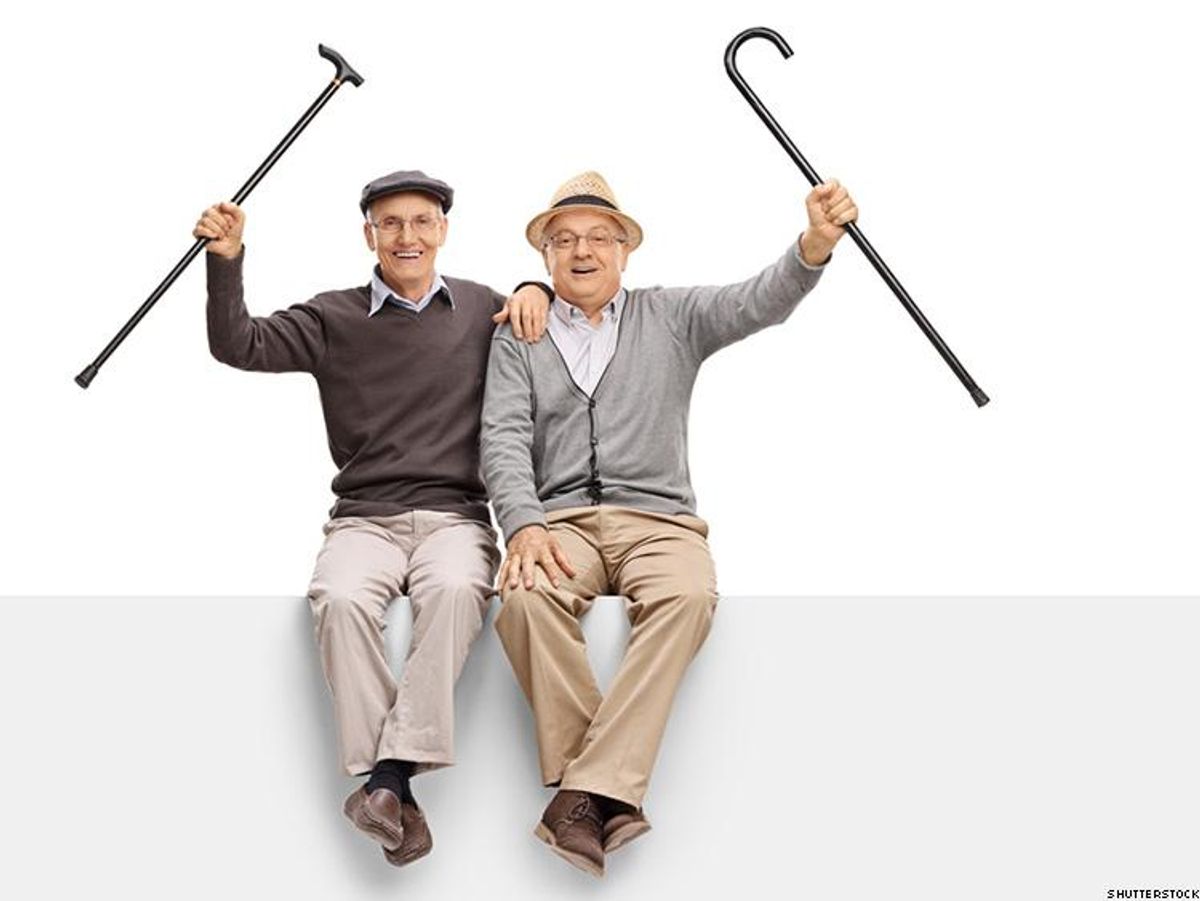On June 5, 1981, the Los Angeles Times covered a Centers for Disease Control and Prevention report that highlighted five patients, all of whom were young gay men, who died of a mysterious pneumonia. On the 36th anniversary of this news story, the first of many harrowing reports on what would become known as HIV and AIDS, the LGBTQ community will come together for HIV Long-Term Survivors Day. This is a moment to acknowledge the journeys of long-term survivors, many of whom were on the front lines in the early days of the epidemic, and to highlight their unique needs as many enter their "golden years."
As more HIV-positive people access treatment and services, the number of older adults living with HIV is rising. In 2013, an estimated 42 percent of Americans living with HIV were aged 50 and older. While the phrase "long-term survivor" is often used to refer to people who have lived with HIV for 10 years or more, those who have been living with HIV since the beginning of the epidemic in the 1980s consider a long-term survivor to be someone diagnosed before the release of the lifesaving "cocktail" of drugs that have turned HIV into a manageable illness instead of a surefire death sentence. The HIV cocktail created a Lazarus effect for many people living with HIV, returning them to a relatively healthy life.
This is, of course, a terrific thing -- newfound life and hope rescued from the former reality of a certain death looming somewhere in the unpredictable future. However, unforeseen longevity has wrought its own set of complications, including survivor guilt, serious side effects from long-term HIV infection and the toxicity of early powerful drugs, loneliness, despair, and the isolation that comes from seeing most of your peer group die before you. Too many long-term survivors get caught in a financial trap, having been forced to go on long-term disability or public assistance benefits when they were too ill to work, and now finding themselves with large gaps in work experience, lacking current job skills, and without savings as they near retirement age. And of course, stigma and discrimination against people living with HIV persists, even within our own communities.
This is sad enough at face value, but let's not forget that many of these long-term survivors were also the heroes of the early HIV response -- the caregivers for dozens of their friends as they died without compassion or assistance from any other source, and the activists who took to the streets to demand human rights for their peers and rolled up their sleeves as volunteers with governmental officials and caring allies to create AIDS service organizations and programs to care for everyone living in poverty, including those living with HIV or AIDS.
Many assumed that the cocktail had saved everyone and moved on, not bothering to take stock of the aging population of survivors. Thankfully, a handful of long-term survivors began to speak up about their lives. They demanded help so they can age with dignity. At Gay Men's Health Crisis we saw their pain, and we did what GMHC was created to do at the start of the epidemic some 35 years ago. We joined with long-term survivors to focus on meeting their immediate needs: decreasing feelings of loneliness and isolation, and increasing a sense of community, self-acceptance, and connection.
Through our 35 years of service, GMHC has become a safe space and safety net provider for people from many marginalized communities, including people living with HIV, the LGBT community, and immigrants. Our groundbreaking work with and for long-term survivors is informed by a long history, which started with the Buddy Program. In stark contrast to the Buddy Program of the early 1980s, GMHC's current program (relaunched in 2015) helps people live their lives to the fullest rather than providing hospice care. The Buddy Program pairs volunteer buddies with clients in need and offers close individual supervision to ensure that both buddies and clients feel supported.
Through GMHC's four long-term survivor support groups, a long-term survivor advisory committee, and in-depth focus groups, we help long-term survivors manage their medication and address physical side effects compounded by aging. We also help long-term survivors understand and access complex benefits structures, as well as navigate the workforce as they age. At our recently launched Long Term Survivors Hub, clients receive a continuum of high-quality, coordinated, and compassionate long-term survivor-specific services, including mental health care, housing assistance, food security, wellness therapies, and substance use care. All of our services are geared toward helping our clients who are long-term survivors foster a much-needed sense of community, self-acceptance, and personal agency.
Long-term survivors are the forgotten collateral damage of the HIV response -- and we, as a community, must do more to support them and address their unique needs. Many were on the front lines fighting for our lives from the earliest days of the epidemic, when death engulfed our community. They have survived as generations have shifted and the reality of HIV and AIDS has transformed around them. We owe it to them to treat their experience with the attention and dignity it deserves, and to ensure they have the support and resources they need to thrive.
KELSEY LOUIE is the CEO of Gay Men's Health Crisis.


















































































Viral post saying Republicans 'have two daddies now' has MAGA hot and bothered